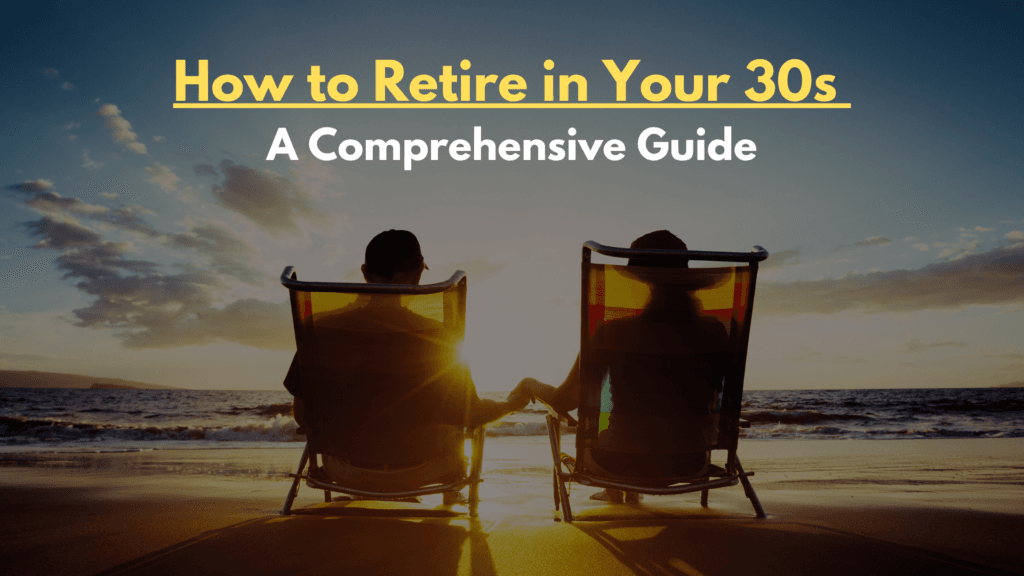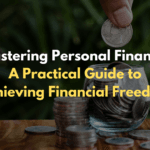Retiring in your 30s may sound like a dream to many, but for a growing number of people, it’s becoming a tangible reality. Financial independence and early retirement (FIRE) have become popular goals for those who want to break free from the traditional 9-to-5 lifestyle. Achieving this ambitious milestone requires careful planning, disciplined savings, and a mindset shift. Here’s how you can retire in your 30s.
1. Start Early (The Sooner, the Better)
The first key to early retirement is starting early. Ideally, you should begin your financial journey in your 20s, but if you’re in your 30s and already considering early retirement, don’t despair. The earlier you start saving and investing, the more you can take advantage of compound interest.
Why Early?
Time is one of the most powerful tools when it comes to wealth-building. The earlier you start, the less you need to save each month to reach your retirement goal. For example, starting at 22 will give you over a decade more of compounding than starting at 30, meaning you can accumulate much more wealth in the same period.
2. Track Your Spending & Budget Like a Pro
Before you even think about how to save, you need to know where your money is going. Start by tracking your expenses for a few months. Look for areas where you can cut back, like dining out, subscriptions you don’t use, or unnecessary impulse buys.
Once you have a clear picture of your finances, create a strict budget that includes your income, expenses, savings goals, and investments. Consider adopting a minimalistic approach to spending—eliminate non-essential expenses and prioritize what truly adds value to your life.
3. Live Below Your Means
One of the central pillars of retiring early is living frugally. This doesn’t mean depriving yourself of everything you enjoy, but it does mean making conscious decisions about how and where to spend your money.
Living below your means allows you to save and invest a significant portion of your income. Many people aiming for early retirement strive to save 50% or even 70% of their income, living on a much smaller percentage of what they earn. This intense focus on saving is necessary to achieve financial independence.
4. Maximize Your Income
To retire early, saving alone might not be enough. You also need to boost your income. Here’s how you can do that:
- Get a High-Paying Job or Side Hustle: Aim for high-income careers like tech, finance, or entrepreneurship. A side hustle (freelance work, consulting, blogging, etc.) can also significantly increase your income.
- Invest in Your Skills: Upskilling through certifications, training, or networking can lead to higher-paying job opportunities. This strategy can accelerate your path to financial independence.
5. Save Aggressively
To retire in your 30s, it’s crucial to save aggressively. The more you save, the quicker you’ll build your wealth. Aim for 50% or more of your income, and be strategic about where you allocate your savings.
Maximize contributions to retirement accounts such as a 401(k), Roth IRA, or other tax-advantaged investment accounts. These can help you grow your wealth more efficiently by deferring or eliminating taxes on your gains.
6. Invest Wisely
While saving is essential, investing is where your wealth will grow. Make your money work for you by investing in a diversified portfolio that includes stocks, bonds, real estate, and other assets. Consider these investment strategies:
- Stock Market: Historically, the stock market has been one of the best ways to build wealth over time. Invest in low-cost index funds or exchange-traded funds (ETFs) that mirror the market’s overall performance.
- Real Estate: Buying properties that generate rental income can provide passive income streams, which are essential for financial independence.
- Dividend Stocks: Stocks that pay dividends can create a reliable income stream, which is particularly important for early retirees.
It’s important to educate yourself about the risks and rewards of various investment strategies, and consider working with a financial advisor if needed.
7. Minimize Debt
Debt can be a significant barrier to early retirement. High-interest debt, like credit card balances, can eat away at your savings. The faster you pay down high-interest debt, the sooner you can start saving and investing.
If you have student loans, personal loans, or a mortgage, develop a strategy to pay them down aggressively. The less you owe, the easier it will be to achieve financial freedom.
8. Plan for Healthcare
One of the most significant hurdles to early retirement is healthcare. If you retire in your 30s, you won’t be eligible for Medicare until you’re 65. You’ll need to plan for how to cover your health insurance.
Consider options like:
- Health Savings Accounts (HSAs): If you have a high-deductible health plan, you can contribute to an HSA, which allows you to save for medical expenses tax-free.
- Private Health Insurance: Research private insurance plans and calculate the cost of maintaining coverage.
- Health Insurance Through a Spouse’s Plan: If applicable, you might be able to rely on a partner’s health insurance plan.
9. Embrace a Low-Cost Lifestyle
Many people who retire early live on a fraction of what they earned while working. This can involve downsizing your home, moving to a location with a lower cost of living, or adopting a minimalist lifestyle.
The less money you need to cover your living expenses, the less you’ll need to save in the first place. Early retirees often opt for slow travel, working part-time in flexible jobs, or focusing on passion projects that bring fulfillment without breaking the bank.
10. Create Multiple Streams of Income
The key to maintaining financial independence without needing a traditional job is to have multiple income streams. Consider building passive income streams through:
- Rental properties
- Investments (stocks, bonds, dividends)
- Online businesses
- Royalties or intellectual property rights
- Freelancing or consulting
These additional income streams can cover your living expenses without requiring you to work full-time, allowing you to maintain your financial independence.
Conclusion: A Long-Term Commitment to Financial Freedom
Retiring in your 30s is not an easy feat, but with a disciplined approach to saving, investing, and living below your means, it is possible. Start by tracking your finances, eliminating debt, living frugally, and investing wisely. It’s a long-term commitment that requires dedication and sacrifices, but the rewards—a life of financial freedom and the ability to pursue your passions—are worth the effort. Whether you want to travel, start a business, or simply spend more time with loved ones, retiring early can offer you the freedom to live life on your terms.


